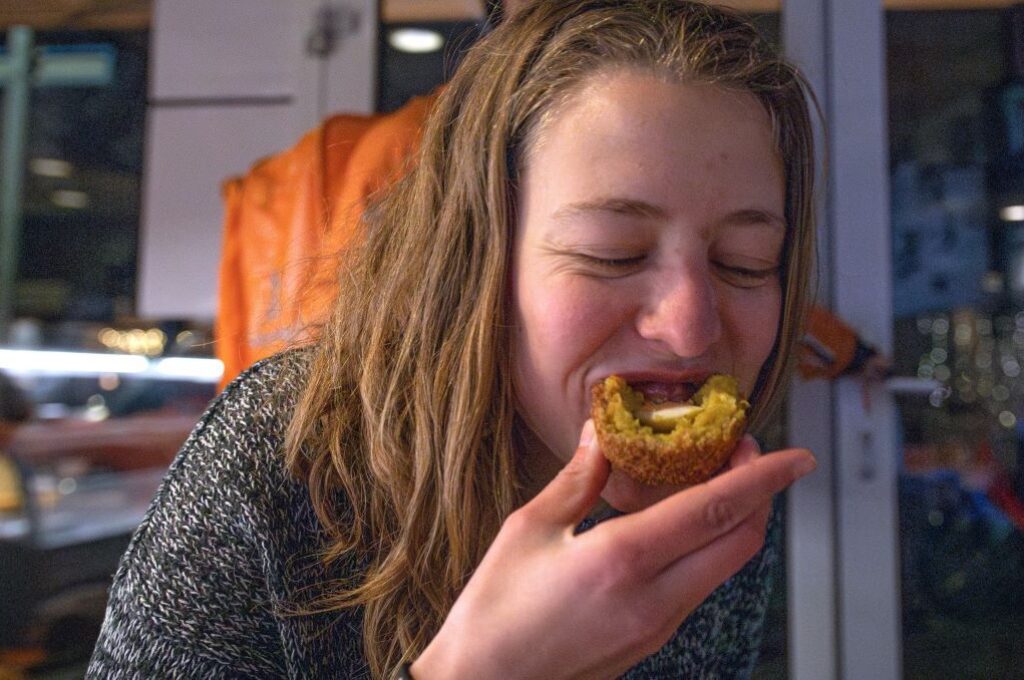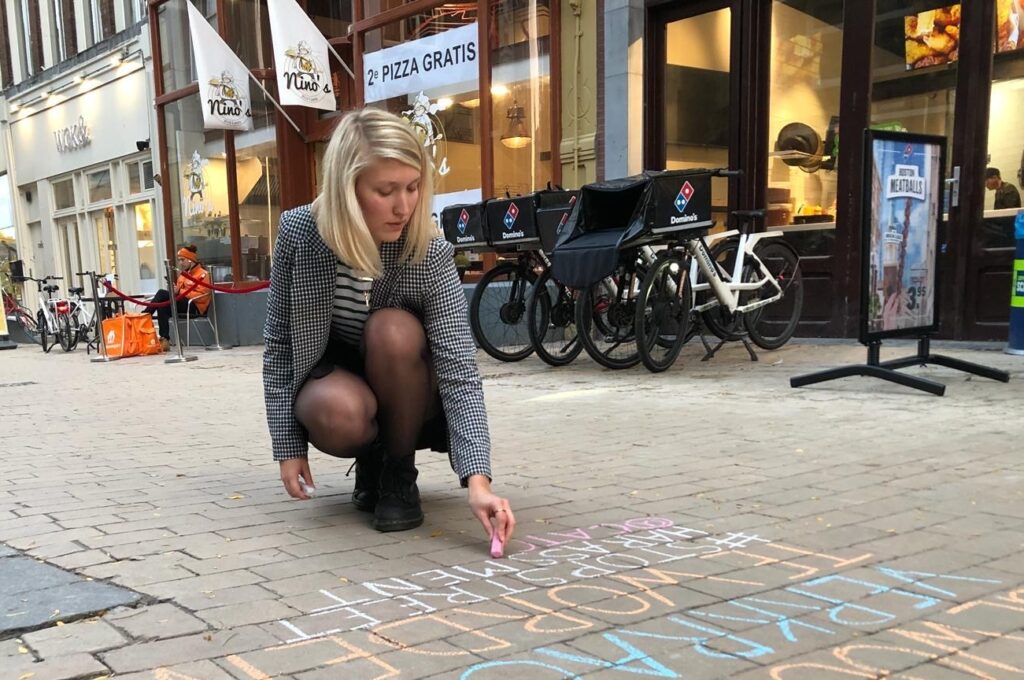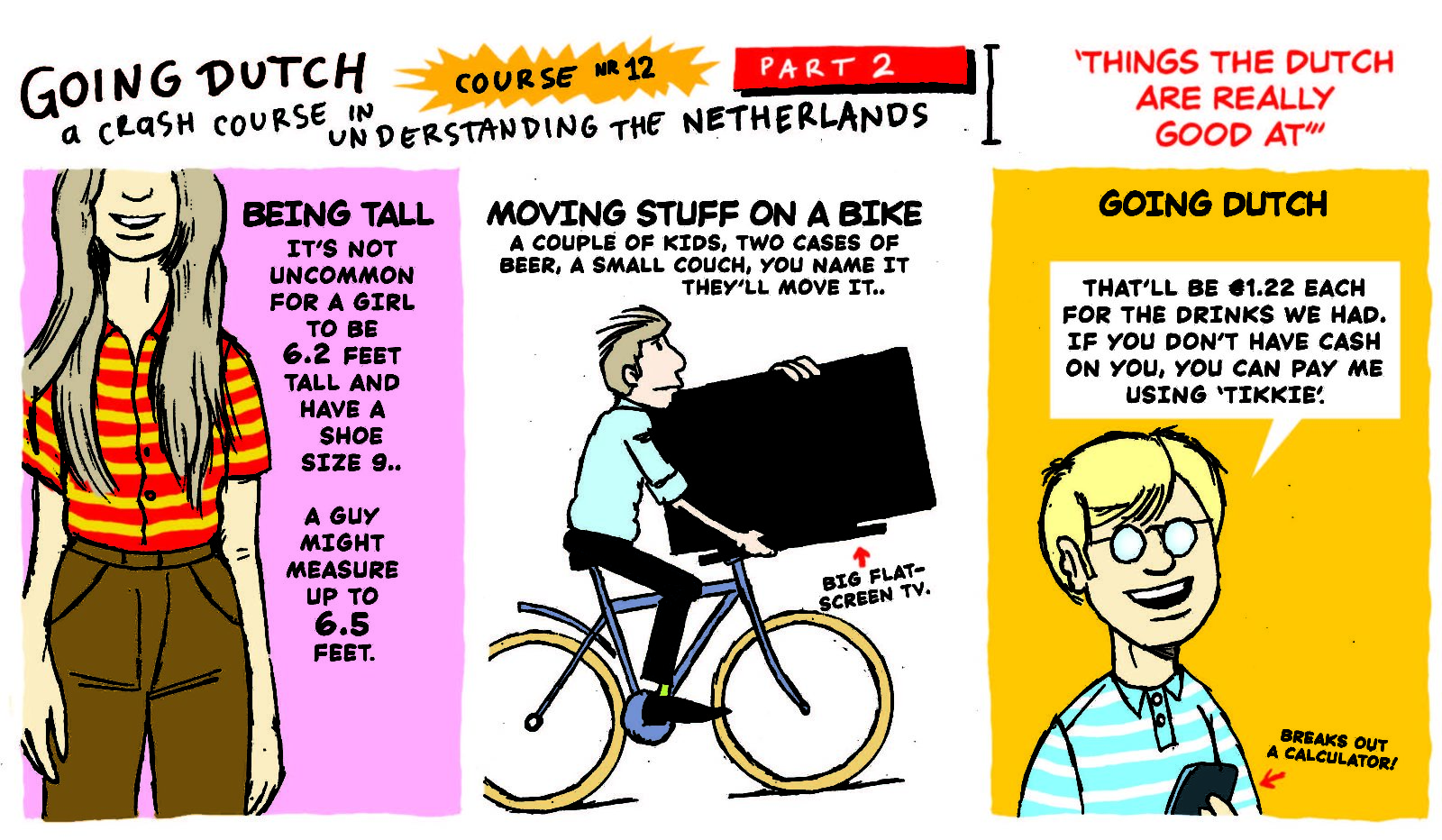Most, if not all, international students in Groningen know ESN Groningen. You probably have been to at least one of their events or parties, right? But what is it like to be on the ‘other side’: to be the organizers? We talked to two board members, Sven Blijleven (treasurer) and Marthe Grotenhuis (secretary), to understand better how their organisation works and what it means to work for ESN.
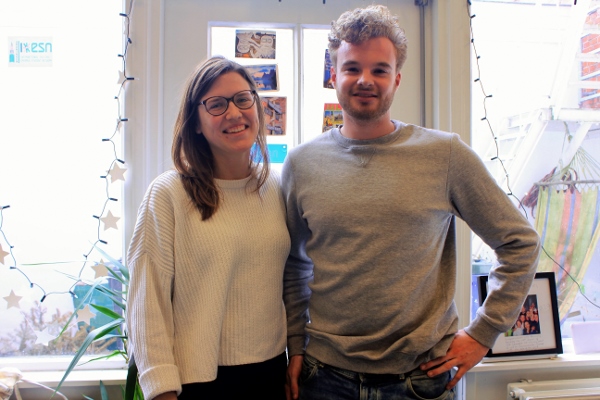
Why did you start working for ESN?
SVEN: ‘After my 21st birthday, I was already done with my bachelor’s degree and I felt I didn’t have much experience in the field of international organisations. I’ve also spent half a year in South Korea and there I got in touch with a similar organisation. Then someone recommend me ESN and I felt this was fun for the upcoming year, but also something in which I could develop myself.’
I went to Salamanca in Spain and there was a super big ESN organization
MARTHE: ‘Kind of the same actually! I finished my bachelor last year and I wasn’t really into doing a master already. I was looking for a year in between, maybe travelling or become a board member for a student organization. I went to Salamanca in Spain and there was a super big ESN organization. I went to so many activities down there. I met many people, so I started to look for different organisations here, because I thought it was pretty cool working in an international organisation here in Groningen and provide the same for the people here as I had experienced in Spain.’
Marthe, after your experience with ESN in Salamanca, do you think ESN Groningen offers better activities and events?
MARTHE: ‘I think that the excursions there were much bigger, but I think it’s because there were a lot more exchange students. Besides, in Spain the prices were lower, but ESN Spain didn’t have things like the introduction week. It was mainly parties and excursions, while here we organize way more different activities.’
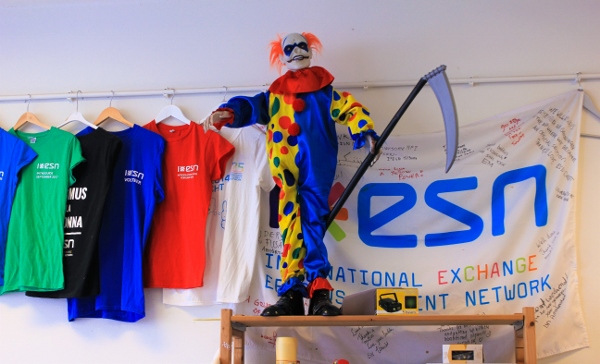
How do you decide which events to organize?
SVEN: ‘The committees decide it. We decide the direction we would like to take it, but in the end it is the committees that decide what activities we are going to do.’
Do you spend part of your spare time organizing events?
SVEN: ‘Usually we are at the office every day from ten to five p.m. and the committee meetings are basically after the working hours, so yes, it is partly in our free time, I guess.’
Do you need permission from the municipality to arrange the events?
SVEN: ‘The only time we are in contact with them for our activities is for the introduction week, because it is so big and it’s city-wide, so we are in touch with the police and the municipality, especially for the final party. Also, our last activity, called “Experience Groningen”, was organised together with the municipality, but there’s a really easy communication, they’re really willing to help.’
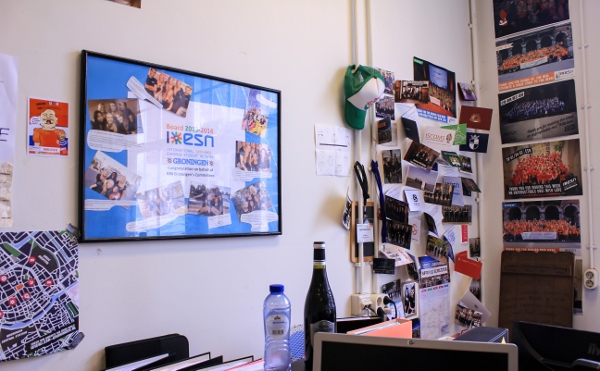
The students who work here, are they mostly Dutch or international?
SVEN: ‘The daily board consist of six students. This year we are all Dutch, while last year there were also international students. But the board year for an international student sometimes is quite hard because for us it is far cheaper and easier to live here, for example we lend money from the government. So, stopping a year with your studies is much more favorable for a Dutch person than it is for internationals.’
I think fifty percent of the committee is international and the other fifty percent is Dutch
‘However, we are still expecting more international students in the future and we are also writing our internal communication in English so that documents can already be understandable for future international members. Besides, there are also 53 committee members.’
MARTHE: ‘Yes, I think fifty percent of the students in committees is international and the other fifty percent is Dutch.’
Do you get paid for working here?
MARTHE: ‘We get a grant from our University of Groningen because we have kind of paused our studies for a year to be able to work here. Is not really like a traineeship, but we get a grant because we put so much effort in it.’
Is it a full time job or do you also do something else?
SVEN: ‘Actually we are officially studying at the University, but we don’t have time because we work full time for ESN, so we are still registered at the University, but we are not participating in any course or doing exams.’
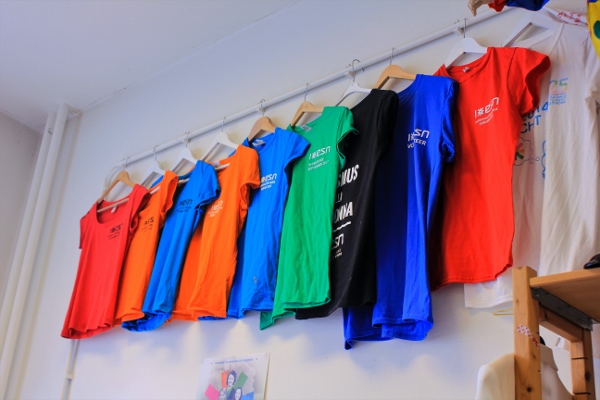
How long have you been working here?
MARTHE: ‘It’s a one year-job. We started around May, now we’re looking for new board members, so we’ll pick them in May and then in September he or she will start the job for a year.’
What activities do international students enjoy the most?
SVEN: ‘The most popular activity I think is the international dinner. Usually tickets are sold out in two, three days, it’s crazy. Excursions also are really popular.’
Have you ever had the feeling that students find your activities too expensive?
MARTHA: ‘No, I don’t think so because, for example, we made a survey for the introduction week, asking people if the activities were too expensive and eighty to ninety percent said they were fine with our prices.’
Dinners are the perfect way to meet new people, experience new cultures and traditions
SVEN: ‘Yes, and I think it’s also important to know that we do not make any profit, we even put some of ESN’s money into the activities, so we can sell the tickets below the cost price.’
Why do you think international student should join ESN?
SVEN: ‘First of all, I think every international student basically arrives with very little knowledge of the city, so it’s a great way to kick start your stay here. Like I said our activities are pretty cheap, so it’s also a good way to explore the Netherlands and the countries around us if you come from far away. I think we offer a wide range of activities, there is something to like for everyone.’
MARTHE: ‘I think it’s so easy to meet so many people from different countries, especially if you come from abroad on your own. Dinners are the perfect way to meet new people, experience new cultures and traditions. Anyone can join, even, and maybe especially, if you are alone.’

